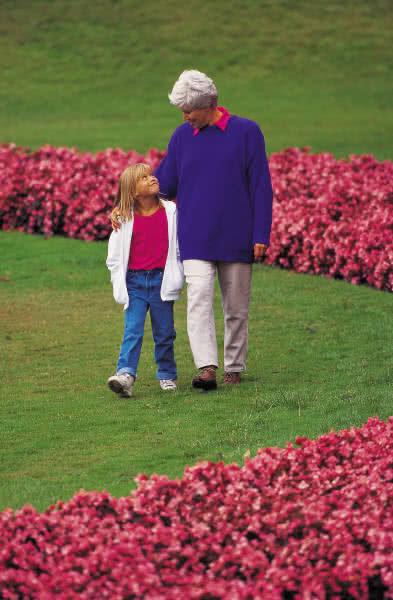Affability In An Angry World

Is it just me or do people today seem more angry, desperate, and defiant? The news must think so because they often describe the U.S. as a divided nation. They write stories about family members who yell at each other, of hostile neighborhoods and workplaces where sides have been taken. The picture they paint is highly toxic and dysfunctional.
One of my neighbors even confirmed this assumption. She encountered a rude individual at the grocery store who really rocked her steady demeanor. When she shared the event with me, she asked this question, “What can be done to restore a sense of calmness to this world?”
Honestly, there is no one ‘thing’ that can be done to reinstate peace and goodwill. There is no one ‘fix’ that can turn this around. But there is one virtue that, when practiced, can open the door to decency and respect. It is called affability.
Affability is a habit of directing one’s emotions towards others in
a spirit of warmth, caring and friendship. It is a decision to see other people in the light of good will rather than contempt. It is the ability to give others the benefit of the doubt rather than assume they are wrong or harmful. In short, affability is being kind to people.
Why is affability sorely needed in today’s world? People become exhausted and worn out when they are – or think they are – surrounded by folks who are hostile or itching for a fight. A sense of constant battle drains one’s emotional reserves and that is unhealthy. Conversely, persons who live – or simply think they live – in an affable environment find it easier to maintain their emotional balance and perspective.
How can people become more affable? First, they extinguish body language that looks toxic. They stop rolling their eyes, folding their arms, and pursing their lips. Instead, they engage others with a smile, they lean in when listening and they maintain eye contact. Affable people know how to ask good questions that allow others to talk and tell their story. Listening rather than commenting is part of being affable. Finally, they never blow another person off. Pleasant people will always make time for the other.
You might think that affable behaviors are difficult to develop. Quite frankly, you would be correct. Yet there is one simple action that you can easily master (or at least fake) that will help others see you as kind- hearted. It is the decision to smile at others. A smile elicits good will – both in the person smiling and to the one seeing the grin. Smiles are known to decrease negative emotions and boost happiness.
Note that affability is not blind optimism nor unbridled positivity. No amount of sunniness can eradicate life’s messiness and disappointment. Affability is NOT learning how to deliver platitudes to those who are irritable or tense. It is NOT putting a Pollyanna spin on life that claims everything will be fine so there is no need to worry. Nor does affability mean that we ignore the need to defend the truth when necessary. However, the virtue of affability makes it much more likely that people will listen to you when you stand up for what is true and good.
Rather, affability is a decision to reframe your perspective about your fellow human beings. It is the resolve to present yourself as someone who can be approached safely; someone who is willing to listen and share a burden. Simply, it is a choice to acknowledge people in ways that put them at ease.
We cannot change other people. But we can change ourselves. We can act like the type of person we want to encounter. It is fully within our power to be decent, enjoyable, and happy. We can present ourselves as people who want to help others flourish rather than make them fume. We just have to decide to reframe our thinking and accept that fellow human beings are more like a brother or sister, not an enemy. You might then find that the people you treat with kindness will in turn be much more friendly to you. The prayer of St. Francis gives clear direction on how to become affable.
Lord, make me an instrument of thy peace;
Where there is hatred, Let me sow love;
Where there is injury, pardon; Where there is doubt, faith;
Where there is despair, hope; Where there is darkness, light;
Where there is sadness, joy.
O divine Master, Grant that I may not so much seek to be consoled as to console;
To be understood as to understand;
To be loved as to love;
For it is in giving that we receive;
It is in pardoning that we are pardoned;
And it is in dying that we are born to eternal life.
